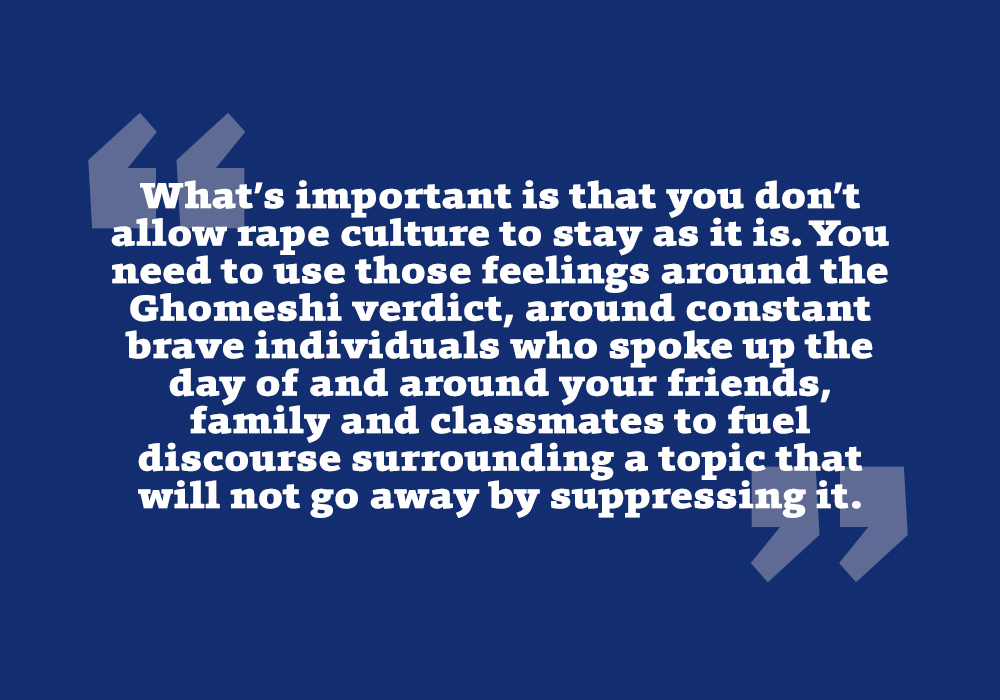The current state of sexual assault

In 2013, I was assaulted. It was after a night out with friends. I drank too much and was falling asleep on the floor. So, completely aware of my actions, I went up to my bedroom alone to call it a night.
Shortly after falling asleep, I was woken by someone behind me trying to touch me.
He was pushing himself up against me, trying to put himself inside me as I grumbled “no.” I ran out of my room shortly after, just wanting to sleep.
I didn’t realize the reality of this assault until two years later, walking home after an intense conversation with some co-workers. I had an anxiety attack and since then, have kept it buried along with the other triggering memories of my 23 years on this Earth.
And now, the day of the Jian Ghomeshi trial, when he was acquitted of all charges, I am finding myself right where I was the day of the panic attack: confused with a strange feeling in my stomach, wondering what will happen to survivors — but more so, wondering what will happen to those who don’t realize it happened to them, as well.
You see, I thought I was lucky.
I have written multiple pieces during my tenure about the current state of sexual assault and gendered violence on Wilfrid Laurier University’s campus.
I have sympathized with survivors. I wrote an editor’s note saying something needs to change. I was passionate about this before I realized how much it also affected me.
But now we’re at a crossroads. And it means more than just one case.
We have students on Laurier’s campuses that are afraid to speak up and very well may be more afraid to speak up going forward.
From a freedom of information request, I found out only three students have gone to Special Constable Services on the Waterloo campus since the beginning of the 2015-16 school year. If the statistics we have come to know about this epidemic are true, doesn’t that seem a little low?
And now, perhaps that number will stay low for the upcoming years. Because people are afraid. People don’t feel safe. And more importantly, people don’t know what to do.
It’s not for a lack of trying from supporters. It’s a fear inside of survivors that they are unsure what will follow. Support is there, yes, but we also know how grueling of a process this can be if someone chooses to report.
And it makes me sick to know that people who may want to report their assailant may be stopped because there’s so much ambiguity, so much stress and so much torture.
This very well may be the last opinion piece I ever write for this beloved newspaper.
And despite how many times I have opened up about mental illness, school and family, this will be the most important to be published.
It doesn’t matter if you are upset, saddened, disgusted or disturbed by the current state of rape culture.
It doesn’t matter if you are unsurprised by the verdict in the Ghomeshi case.
It really doesn’t even matter if you believe me right now.
What’s important is that you don’t allow rape culture to stay as it is. You need to use those feelings around the Ghomeshi verdict, around constant brave individuals who spoke up the day of and around your friends, family and classmates to fuel discourse surrounding a topic that will not go away by suppressing it.
I was assaulted in 2013. And I’m okay. But our current state of sexual assault is not.


